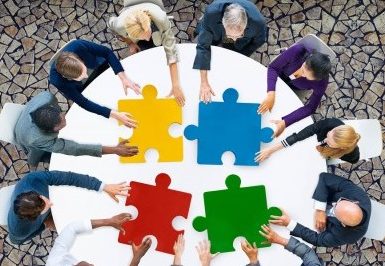I’ve been exploring some of the problems working in teams in my posts here. How can you be an effective team player and help your work group be successful?
It may seem unlikely that there could be anything new to learn about what makes teams effective, but there is. More than ever before, work today gets done in teams, and your ability to contribute as a member is vital to your career success.
Every team is a unique social unit. The quality of members’ social interactions —both intra-team and inter-team — determines project success or failure. Each member contributes to group outcomes — and some more so than others.
But until recently, there hasn’t been much specific advice on how to improve your value as a team member. You’ve probably been advised to “display empathy,” “respect diversity,” and communicate and share openly. As a team member, you’re directed to work for common goals rather than focusing on personal success.
Sometimes effective team players are evaluated on factors like leadership, technical skills, vision, communication, and motivation. But although these matter, they’re not nearly as important as social skills.
Deep Human Interactions
Research using ever more sophisticated measurement and observation technology has now determined that the number one factor in making a group effective is skill at deep human interactions.
But what does that mean? How does that show up during daily tasks? Effective team members demonstrate consistent social skills, like noticing the subtlest elements of social cues: a furrowed brow, a smile, a desire to speak up.
I’ve been intrigued by social interactions from my work coaching people in companies. Researchers have studied groups for years. They’ve learned that intelligence doesn’t completely explain a group’s effectiveness, nor does group cohesion, motivation, or satisfaction. Stability of the team and its size matters only a little.
Furthermore, following lofty ideals doesn’t bring about a significant impact on team effectiveness although these are certainly beneficial:
- Having a clear, challenging, meaningful vision
- Specifying well-defined roles and responsibilities
- Giving members appropriate rewards, recognition, and resources
Such concepts are fine but don’t determine the success of teams. There is only one ability that stands out in people who are effective team players: they all have great social sensitivity.
Social Sensitivity
Social sensitivity is the ability to perceive people’s thoughts and feelings based on looking at their faces and other nonverbal cues. Social sensitivity shows up when team members read body language, take turns talking and listen well. Not surprisingly, many women perform better than men in measures of social sensitivity.
What’s your opinion? What do you notice about your most effective team members? I’d love to hear your opinion on this. You can reach me here or on LinkedIn.

Did You Enjoy This Article?
Join thousands of other smart business owners like yourself & get our Proffittable Times newsletter.
It's filled with actionable content you can apply immediately.
Sign up now to get started!
– Coach Nancy










